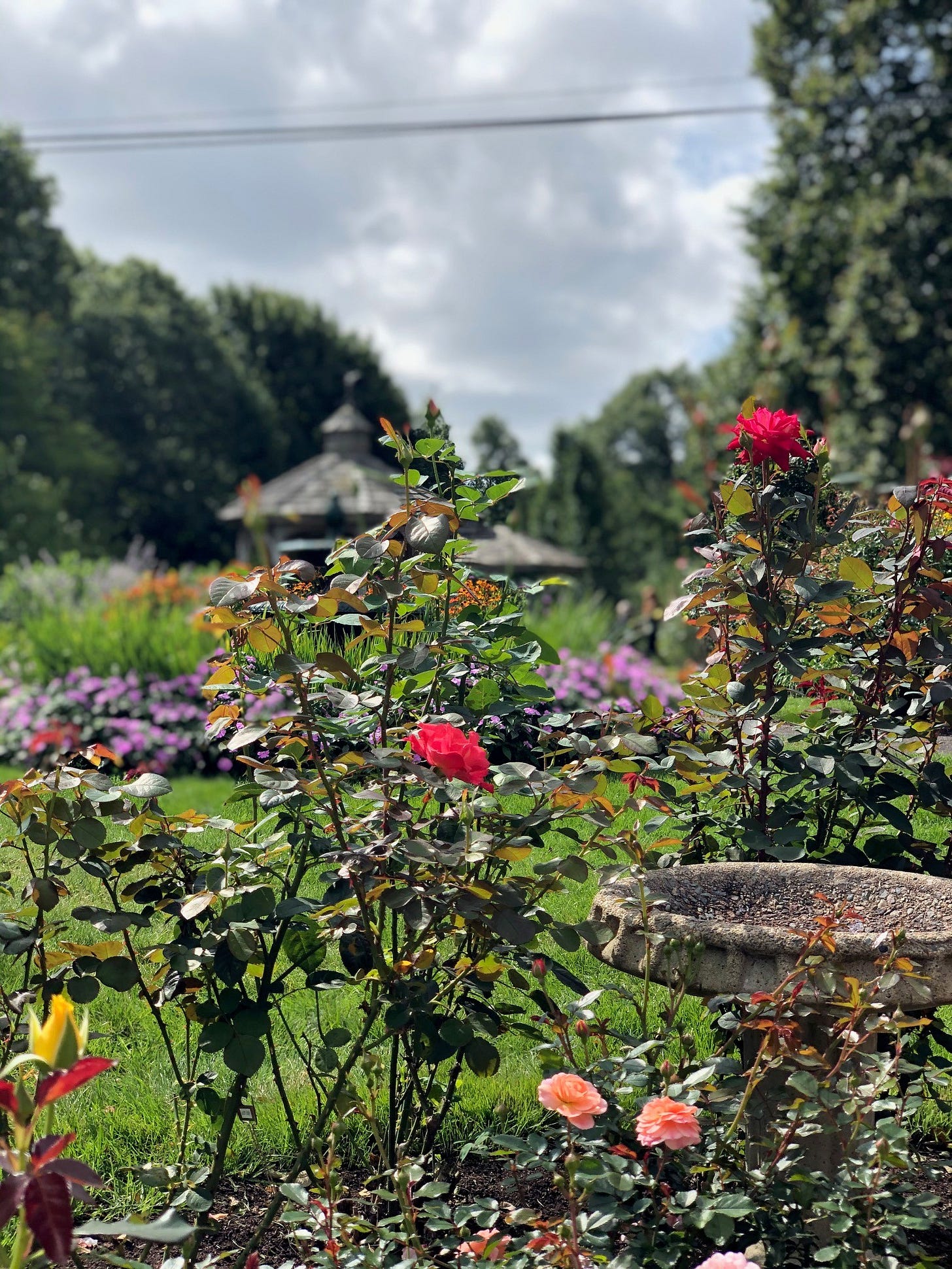Some Dreams Deserve to Die
And other necessary endings that free you to finally grow
“The good cannot begin until the bad ends.” —Dr. Henry Cloud
After announcing to the world that I want to be in movies, I sort of expected to field some calls from casting directors. I didn’t. It was the quickest ending of any endeavor, but a necessary one. Thank you, Dr. Henry Cloud.
It’s been rather chilly in the mornings here south of Boston, so on the treadmill, I’ve been listening to Necessary Endings by Henry Cloud. Naturally, I can’t help but view everything through the lens of my own life. It’s hard to listen sometimes when my mind drifts to those times when I was most hurt by endings I didn’t see coming.
Mom moving out of the house. Breakups with girlfriends. Leaving my first career to work with my dad, then leaving the family business fourteen years later.
I don’t know if there’s an official quality for “being good with endings.” Not everyone struggles with them, but I do. The more I listen to Dr. Cloud, though, the more I understand why they matter.
In Necessary Endings, Henry Cloud shows that if you want to move forward—whether personally or professionally—you must first end what is no longer working. That means cutting away relationships, projects, habits, roles, or businesses that are draining your resources. He helps you determine what needs ending, when to end it, and how to do it well (including navigating the emotional toll). The aim isn’t just to survive endings, but to use them as a springboard into a stronger, more aligned future.
Dr. Cloud’s pruning metaphor has particularly struck a chord with me. He draws from gardening—specifically rose care—to explain it. A healthy rose bush produces more buds than it can sustain. If the gardener doesn’t cut some off, the plant spreads its limited resources too thin—the result: a bush full of mediocre flowers instead of a few thriving blooms.
So the gardener must intentionally cut away even healthy branches to allow the best ones to flourish. This act looks destructive in the moment, but it’s actually an act of growth and stewardship.
Cloud identifies three categories of things that require endings:
1. Healthy but not the best. These are good opportunities, relationships, or activities—but they aren’t the right ones for your purpose or future. They take up time, money, or emotional bandwidth that could be invested in what matters most. Think about a good client who prevents you from serving your ideal client, or a project that’s profitable but uninspiring. Ever feel like you’re spending way too much time on your 80%—customers or relationships that don’t result in your most profitable or enjoyable outcomes? Maybe it’s time to spend more time on the 20%. The ones that move the needle financially, yes, but also the ones that give you the most joy. And peace.
2. Sick branches that won’t recover. These represent efforts or relationships that are struggling despite repeated attempts to fix them. They’re not toxic, but they’re not improving either. Holding onto them drains resources and hope. This is especially difficult when you’ve become friends with someone who reports to you. I’ve been here, and no, I didn’t make the cut. It was a costly decision, and in hindsight, a big mistake.
3. Dead branches. These are clearly over—projects, people, habits, or situations that have no life left in them. They’re often the hardest to let go of because of nostalgia, fear, or guilt, but they prevent new growth. An outdated business model. A friendship that no longer exists in reality. A goal that no longer aligns with who you’ve become.

I think the last one is most relevant for this week. Writing about personal growth is what I do, and wow, do most of us have dead branches in our lives.
But pruning is not about punishment or failure—it’s about focus and health. Without it, everything gets a little bit of attention, but nothing thrives. Cloud argues that great leaders, successful organizations, and emotionally healthy people are those who know when to end, and how to do so decisively yet compassionately.
He warns that most people and organizations stagnate not because of lack of talent or opportunity, but because they fail to make the endings that free them to grow.
Many people resist this process because it feels like loss or failure. Cloud reframes it as intentional stewardship—you are redirecting your life from the good to the best, from the possible to the purposeful. It’s not quitting—it’s curating. And if you’re honest with yourself, you’ll know which branches need to go. Of course, knowing isn’t enough. You need the courage to use the shears. There’s no need to cut everything all at once. That’s extreme. But start with one branch at a time. It’s the first step that’s always the hardest.
Just remember, this isn’t a one-time event; it’s a rhythm of life. Just as gardeners prune annually, we must regularly evaluate our commitments, relationships, habits, and goals to determine what still deserves our attention. In Cloud’s view, pruning is the secret to sustainable success—it ensures that growth never becomes chaos.
In my life, I pruned after my dad got sick, and then again after he passed. I let go of guilt, regret, grudges, and resentment that had been weighing me down for years. I embraced changes in my lifestyle—better sleep, exercise, meditation. And I found purpose after loss: this very newsletter, my books, public speaking, and deeper connections in my personal relationships.
Before joining American Solutions for Business, I had to cut ties with old clients and relationships that were no longer serving me. They were holding me back. They were, to use the word, toxic, and I have no room in life for toxicity. Leaving my old company was an absolute necessary ending. I only wish I had acted on it sooner.
Knowing when to prune that career path, the job you’re suffering through, or a relationship that’s not aligned with your purpose (professional or personal) is difficult. I get it. We tend to wait for something bad to happen before we wake up and realize it’s time to change. A diagnosis. A divorce. A merger. A market crash. A crisis.
But holding onto these outdated patterns inhibits the next chapter—or worse, can cause you to spiral.
So about that movie career.
It was a dead branch the moment I wrote it down. I knew it. You knew it, too. But I needed to say it out loud to see it clearly. To admit what I was actually chasing—not acting, but recognition. Not a craft, but validation.
And once I named it, I could prune it.
Some dreams aren’t meant to be pursued. They’re meant to be examined. To teach you something about what you actually want, what you’re actually afraid of, and what you’re using as a distraction from the work you’re already supposed to be doing.
I don’t need to be in movies. I need to write books that matter. I need to help people navigate their own necessary endings. I need to show up for my family, my clients, my students, and myself.
That’s the branch worth watering.
So what about you? What are you holding onto that’s keeping you from flourishing? What relationship, job, habit, or dream is draining your resources without giving anything back? What would happen if you finally let it go?
Pruning isn’t loss. It’s making room for what’s already trying to grow.
And the good really cannot begin until the bad ends.
What are you ready to prune?




